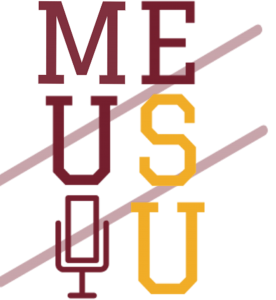As a teacher and scholar, I understand writing as a powerful and adaptive process that holds a variety of transformative potentials for global citizens. I’m particularly interested in and inspired by digital writing practices that ignite social change. In my teaching at SU, I focus on the transformative potential of civic, professional, creative, and scholarly writing in the Publishing and Editing program and the First-Year Writing and Honors Programs.
In the Publishing and Editing track in the SU English Department, I’m excited to develop courses that focus on cutting-edge industry practices and engage critical understandings of the ways that various media impact each other and their cultures. My two main goals in designing Publishing and Editing courses are: to develop students’ confidence composing and circulating a variety of media across a variety of platforms, and to develop students’ understanding of the various cultures and organizational structures that govern media industries. To accomplish these goals, I employ a project-based pedagogy that encourages collaboration and reflection.
In the first-year writing and Honors programs, I have three major goals: to promote a broad definition of writing that includes textual and non-textual compositions; to promote a situation- and genre-based composing process; and to promote an awareness of the work writing does outside of the academy.These goals stem from my conviction that the work we do in writing-focused classrooms extends beyond the institution to influence students’ daily lives and has potential to enact or foster social change. To reflect this, my classes are structured to engage students in doing, composing, and enacting to inform their practice as writers and as citizens in a transnational world. My approaches in these classes are informed by teaching for transfer pedagogy that emphasizes articulating key terms and engaging in regular reflection.
The “Teaching” section of this portfolio provides an overview of the courses I am teaching at SU. For a full list of my teaching assignments, please see my C.V.
Publishing, Editing, and Media Courses
ENGL 540: Digital Editorial Internships
Interns take on a variety of digital projects, including anthologizing and archiving existing department publications, and organizing, editing and developing content for SusquPub, the wiki repository for the Publishing and Editing program. Students also work with me to prepare workshops for sharing digital publishing skills across the program.
ENGL 390: Writing & Editing Podcasts Students in this course form an editorial board and production staff to write, record, edit, and publish Me/Us/U, a podcast focusing on students’ unique experiences and knowledge and how they intersect with a variety of aspects of arts, literature, and culture. Click here to hear Season 1. Season 2 is coming in Spring 2021.
Students in this course form an editorial board and production staff to write, record, edit, and publish Me/Us/U, a podcast focusing on students’ unique experiences and knowledge and how they intersect with a variety of aspects of arts, literature, and culture. Click here to hear Season 1. Season 2 is coming in Spring 2021.
ENGL 390: Digital Publishing
This course provides foundational theories of digital rhetoric, digital media studies, and digital humanities, which guide the production of a variety of digital texts, including digital remixes, transmedia campaigns, blog posts, and wiki entries. See below for sample materials.
WRIT 270: Small Press Editing & Publishing
This course investigates how literary magazines and presses promote and support significant artistic expressions by contemporary writers and artists. We will discuss ethical and aesthetic aspects of publishing and the difference between small press publishing and the world of trade publication as we work toward a critical understanding of how publishing reflects and influences the world around us.
ENGL 299: Professional and Civic Writing Practice and Theory
This course offers experience in theory and practice of professional writing (writing that occurs in the workplace, especially in businesses, in government and for nonprofits). Students gain experience writing a wide range of genres, such as letters and memos, feature stories, interviews, biographical sketches, press kits, fliers and brochures, and proposals.
ENGL 190: Introduction to Modern Publishing
This course introduces students to the guiding theories and concepts of the modern publishing industry. It provides history of text technologies and an overview of the various cultural practices that overarch textual production.
First Year Writing Courses
ENGL 100: Literary Writing and Thinking
Designed for first-year English studies students, this course takes a genre-focused approach to composition that prepares students for the diverse writing tasks they’ll take on during their time at SU, and into their careers.
ENGL 100: Writing & Thinking
This course serves as an introduction to college writing, reading and discourse. This course is focused on exploring the benefits and limitations of digital literacy in civic discourse. Course work includes a digital literacy narrative and a rhetorical analysis of a digital text. I’ve taught two preparations of this course: Writing & Thinking with Digital Media (see below for sample materials) and Writing and Thinking with Genres.
HON 100: Thought: Thinking About/With Digital Media
This honors-level composition course introduces students to threshold concepts in digital literacy studies and digital rhetoric studies. Course work includes a digital literacy narrative, rhetorical analysis of a digital text, and a mutli-genre digital composition.
Sample Materials
ENGL 390: Digital Publishing
There’s no denying the impact that digital media and digital technology have made on the modern publishing landscape. These production and delivery technologies have reconfigured the definitions and roles of authors, audiences, publishers, and texts themselves. This course begins to explore those reconfigurations as they play out in digital and print environments. By drawing on research in rhetoric and composition, media studies, and the digital humanities, this course provides a theoretical foundation for approaches to digital publishing, as well as practical experience in composing, revising, editing, and publishing in a variety of digital genres.
Project 1: Digital Genre Analysis Assignment Sheet & Student Example
Project 2: Remix/Recirculate Project Assignment Sheet & Student Example
Project 3: Transmedia Project & Student Example
Project 4: ePortfolio Assignment Sheet & Student Example
ENGL 100: Writing & Thinking with Digital Media
Writing and Thinking introduces first year students to the terms, methods and goals of intellectual discourse. It helps students to master the tools essential to the craft of writing and encourages them to develop their own ideas, to explore and support those ideas with evidence, to marshal that evidence logically, and to express themselves in a graceful and conversational style. Writing and Thinking lays the groundwork for the kinds of writing students will be doing in all of their other academic classes and the sorts of interdisciplinary writing that they will continue with in their respective majors and specific fields of interest.
In this course, we will study the ways in which people make and share knowledge using a variety of modes, media, tools, and platforms. We’ll employ literacy studies and rhetorical studies as our lenses (which will function as our paradigm) to make hypotheses about the ways in which digital media impact (and are impacted by) a variety of economic, political, and social structures.
Project 1: Digital Literacy Narrative & Podcast Assignment Sheet & Student Example
Project 2: Annotated Bibliography & Infographic & Student Example
Project 3: Rhetorical Analysis of a Digital Text & Student Example
